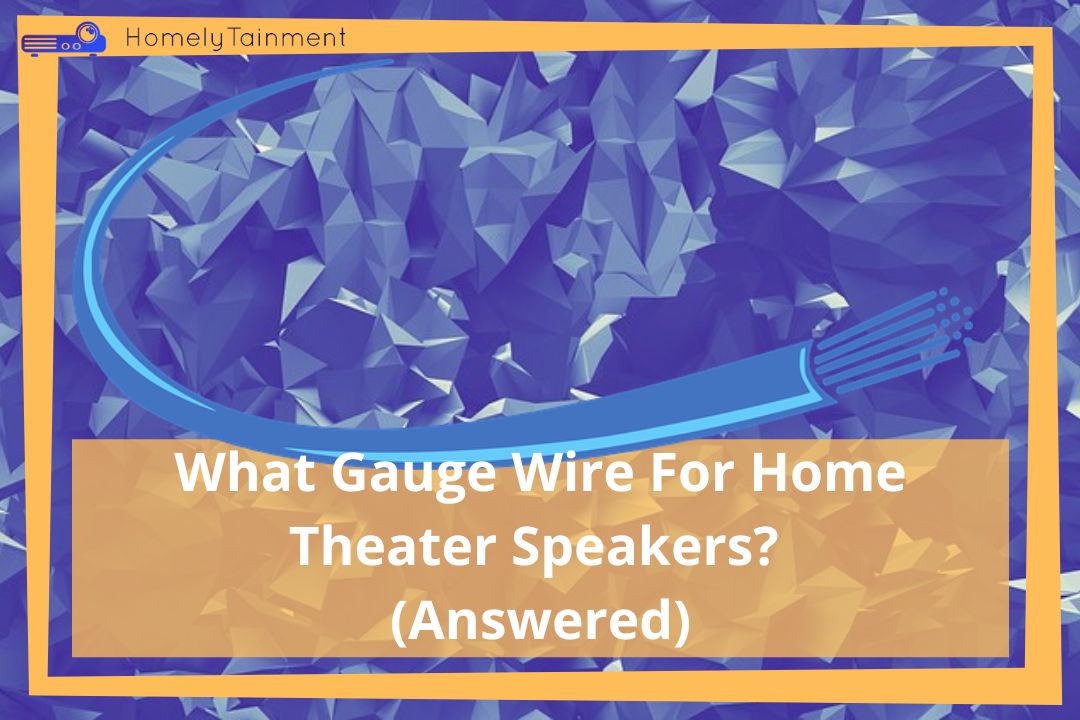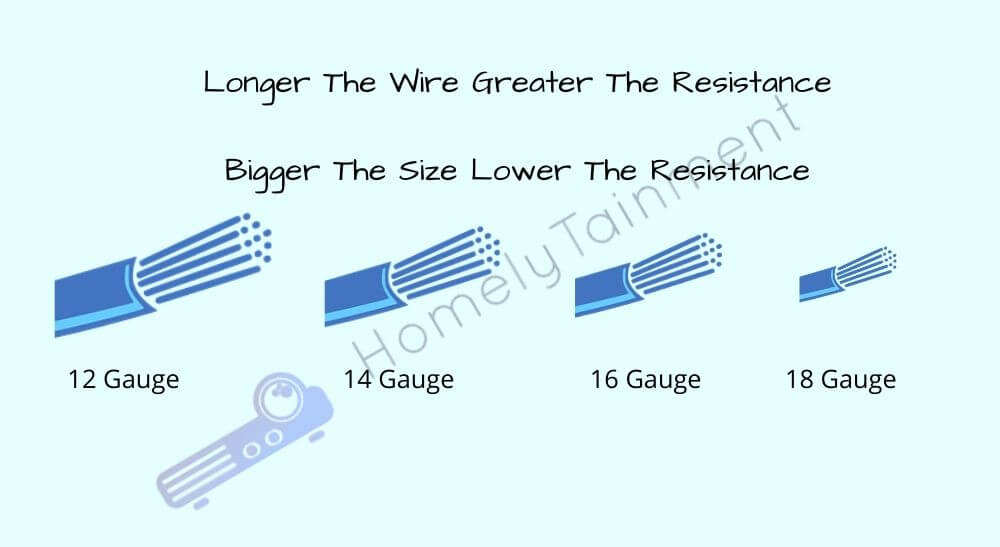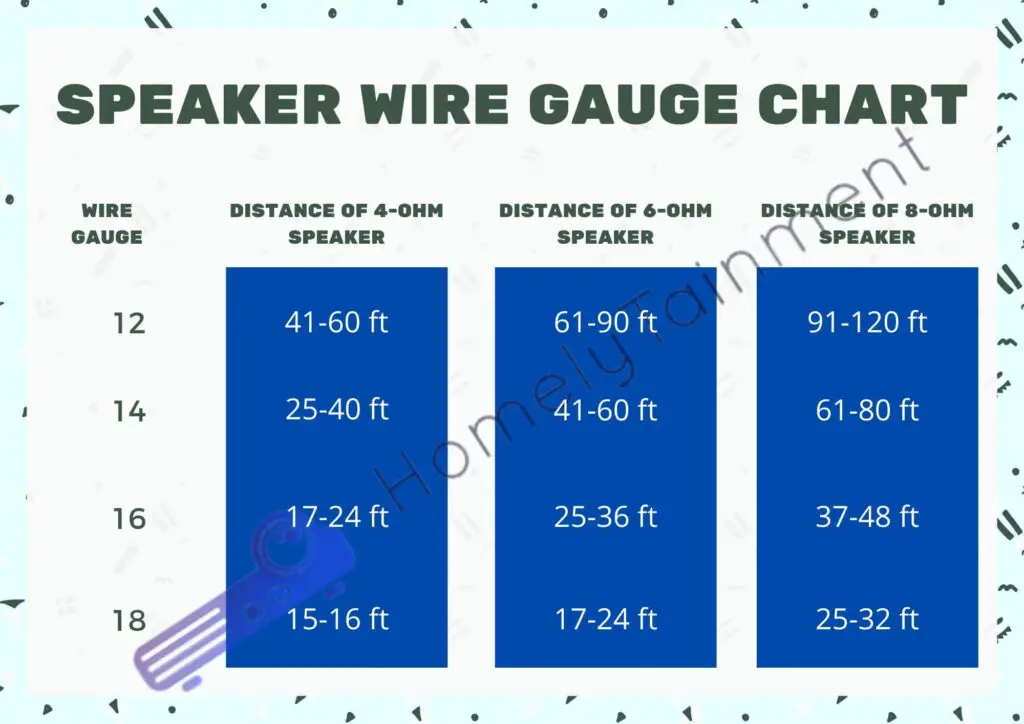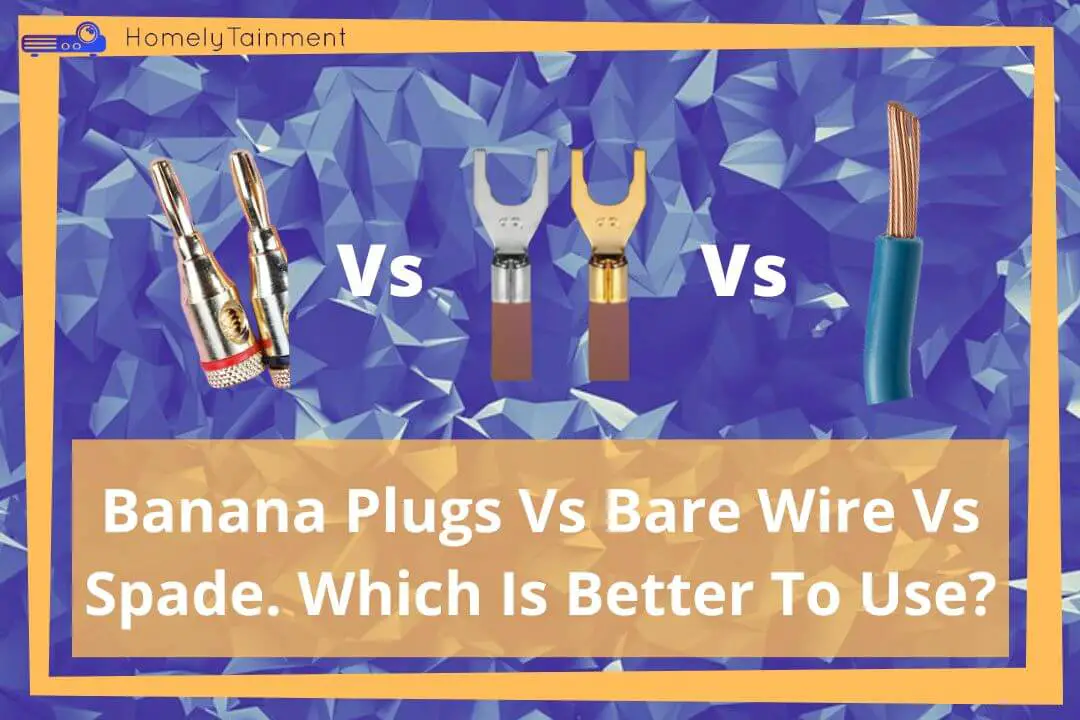
Homelytainment earn commissions (at no additional cost to you) if you purchase products from retailers after clicking on a link from our site.
The wires don’t come, with the home theater system or the speaker set you buy, but when they usually come they are not of good quality. That’s why you should buy the wires yourself. I have talked about bookshelf speakers in this guide but it is suitable for every type of speaker. So, what gauge wire for home theater speakers?
At A Glance: A wiser person’s advice is to always go for lower gauge wire if you can afford it but if you want to save money then you can use 16 gauge wire for a speaker that is 6 ohms and for a distance of 45-50 ft.
Or Calculate the write gauge wire with the help of the below calculator
Calculate Speaker Wire Gauge (AWG)
It will be better if you use a little higher gauge number than the calculator shows you. You will know to read the below article why I recommend this. This calculator works for one speaker at a time. You can visit this calculator’s dedicated page to know more.
Keep reading as we will be discussing this in detail and will throw light on more related queries to this matter. Don’t forget to download the speaker wire gauge chart at the bottom of this article. I will be answering a few of the most related questions. Stay tuned and acquire knowledge.
12 Vs 14 Vs 16 vs 18 gauge. Which is better?
| Wire Gauge | Distance Of 4-Ohm Speaker | Distance Of 6-Ohm Speaker | Distance Of 8-Ohm Speaker | Best For Which Channel Speakers (My Remarks) |
|---|---|---|---|---|
| 12 | 41-60 ft | 61-90 ft | 91-120 ft | Best For Rear Speakers & Atmos |
| 14 | 25-40 ft | 41-60 ft | 61-80 ft | Best For Surround sides |
| 16 | 17-24 ft | 25-36 ft | 37-48 ft | Best For Wider Surround Sides |
| 18 | 15-16 ft | 17-24 ft | 25-32 ft | Best For Front Speakers |
The usage of the gauge is dependent on the environment of the home theater. That’s why I have not stated one specific gauge for your usage. Because your theater is different from mine.
First, observe the illustration below to understand this topic easily.

The gauge is relying on two aspects. The first is the distance of the speaker from the amplifier/receiver. The greater the distance, the more resistance will be and the harder for the amplifier to drive the speakers.
Another aspect is the ohm means the impedance of the speakers. The greater the ohm, the greater the resistance. The greater the resistance, the less power the speaker will get from the receiver.
The lower the ohms, the greater the speaker will suck power out of the receiver. That’s why for a very long distance you need a wire that is lower gauge and for a lower ohm, you need a lower gauge wire.
To understand it easily. The harder for your mouth will be to suck a smoothie through a thin straw and vice versa.
Now, you will have to bring the ohms of your speaker and its distance from the receiver and will buy a wire accordingly. I hope it is easier for you, but if it is not, then you can leave a comment at the end of this article. Keep reading as I am going to explain a few of the more critical aspects of it.
But keep in mind that you should always keep the wires in good condition and buy good quality wires that are insulated well. Because poorly insulated wires can result in interference. Check this amazon choice speaker wire.
Also, take care of the wires because they can wear out with time. That’s why I recommend attaching the wires with the help of banana plugs. Check these gold-plated banana plugs on Amazon.
Read my this guide to know how to optimize the home theater audio in 5 steps. Your theater audio will feel like heaven after applying these steps.
Should speaker cables be the same length?
In-Short: As a general rule of thumb, keep the length of the wire the same between each pair of speakers in the home theater.
In-Depth: The length of the wire contributes to greater resistance, and this resistance can further contribute to the crossover of the speaker.
That’s why I recommend keeping the same length between each pair of speakers. By pair, I mean when you connect the front left speaker with a 3 ft speaker, then you should connect the front right speaker with the same length of the wire.
You can connect other surround-sound speakers, with another length of wire, which is demanded by their placement. But keep the length the same for two speakers in a pair.
From size, I will recommend my this guide too. Is a bigger center speaker better? The size debate here also affects the sound.
Speaker Wire Gauge Chart (Downloadable)

FAQs
Is 20 gauge speaker wire good?
It is good if you want to connect at least 4-ohm speakers at a distance of 2-3 ft. But if you want to extend the length, then this size of wire is not good for you.
There will be high resistance in the wire and a lot of energy from the receiver will be used during the travel of the electric energy through it.
Is lower gauge speaker wire better?
It is better when taking the impedance of the speaker and the power of the receiver, but not better when looking for a budget.
The lower gauge wire helps the receiver/amplifier to drive the speakers easily and all the power will travel to the speaker and the power will not be lost dealing with the resistance of the wire.
Does the length of the speaker wire matter?
The length of the speaker wire does matter because there will be a lot of the mass of the wire that will contribute to its resistance, and it will be hard for the amplifier to push the energy to the other end.
The longer the wire, the greater the resistance and the greater the stress on the amplifier.
Helpful Resources For The FAQs To Read More
- This was my opinion, read more about it from Crutchfield Blog. (Resource for the second answer)
- This was my opinion, read more about it on Audioholics Blog. (Resource for the third answer)




